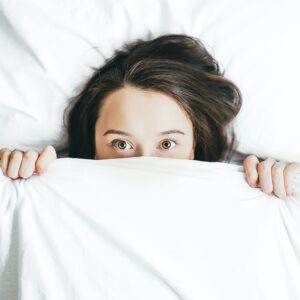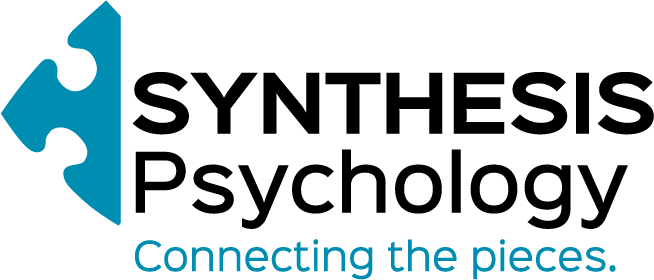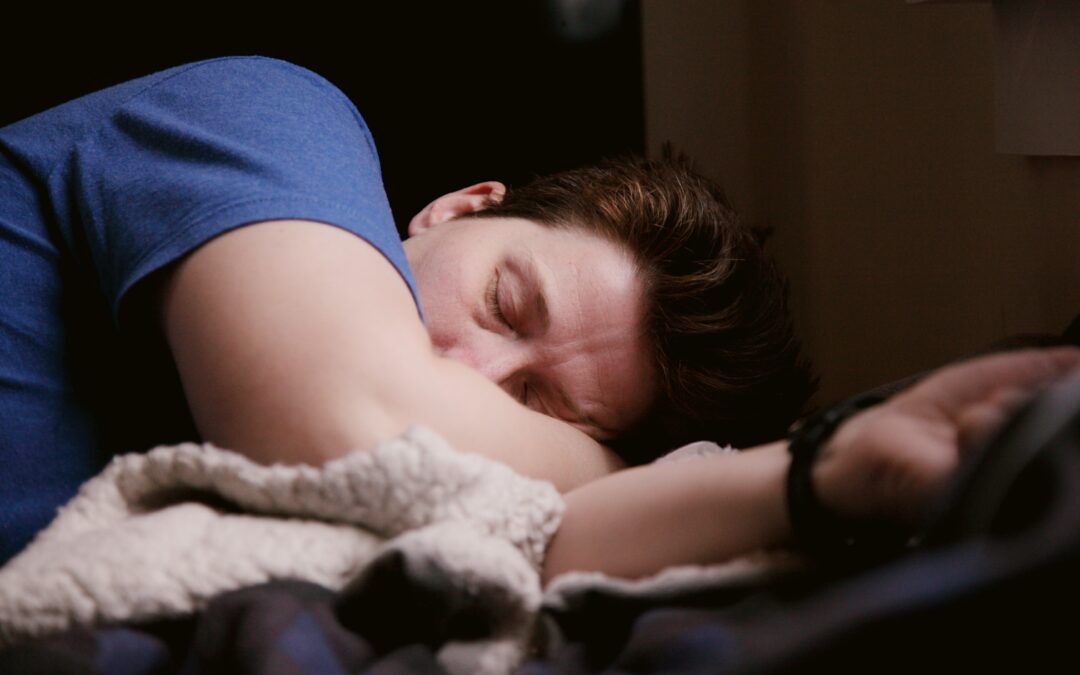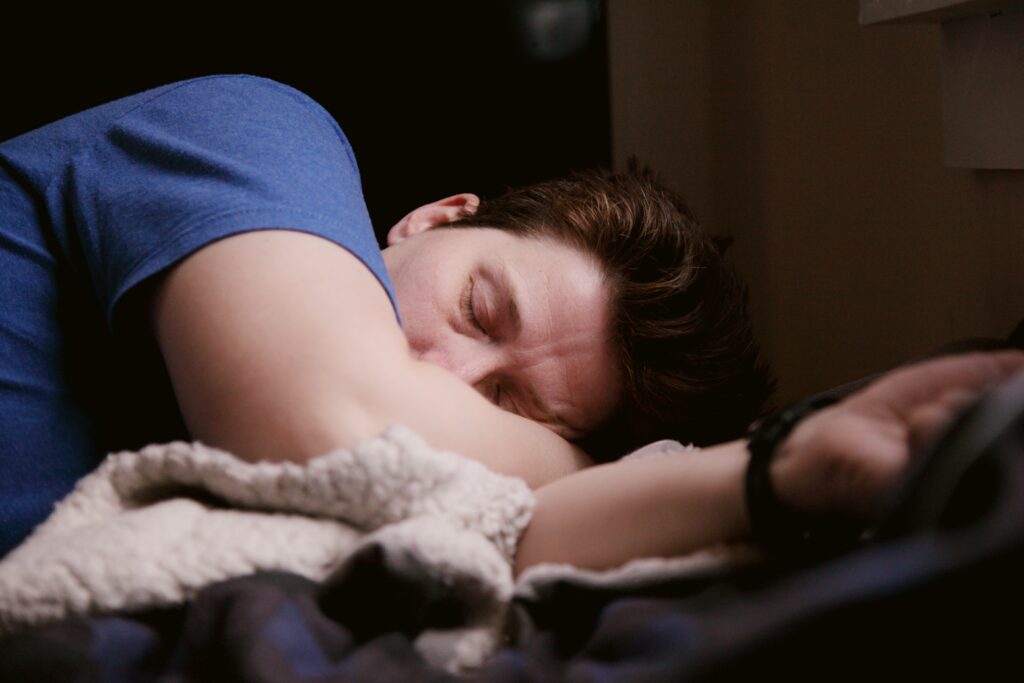
There’s lots happening unconsciously when we’re sleeping. We use to think it was passive but sleeping is a very active process when it comes to brain functioning.
It’s also vital for our physical and mental health, our safety, survival, and work performance.
Quick Sleep Facts:
Physical Health: research shows that sleep problems relate to chronic health issues like diabetes, cardiovascular disease, immune deficiency, and hypertension. There’s also health risks that correlate with excessive amounts of sleep (Landolt, 2014).
Mental Health: Sleep loss at chronic rates tend to lead to mental distress, depression, anxiety, and increased rates of alcohol use to manage symptoms. Sleeping well helps foster resilience (Freeman, 2017).
Being Sleepy: if you’re driving or working in a physically-demanding job where you’re operating equipment, driving, or tending to medical patients, sleepiness can be dangerous.
What Is REM Sleep?
According to the Sleep Foundation, Rapid Eye Movement (REM) plays an important role in memory, emotional processing, healthy brain development, dreaming and also muscle recovery. It’s the longest-lasting and final stage of our nightly sleep cycle, occurring right before you wake up in the morning. We experience 4 stages of sleep (REM sleep and three non-REM sleep stages), each one lasting approximately between 1 minute to 1 hour. This varies depending on your age and how much alcohol you consume.
| Sleep Stages | Type of Sleep | Other Names | Normal Length |
| Stage 1 | NREM | N1 | 1 – 5 minutes |
| Stage 2 | NREM | N2 | 10 – 60 minutes |
| Stage 3 | NREM | N3, Slow-Wave Sleep (SWS), Delta Sleep, Deep Sleep | 20 – 40 minutes |
| Stage 4 | REM | REM Sleep | 10 – 60 minutes |
Circadian Rhythm
Your Circadian Rhythm is a central aspect of sleep hygiene because it’s what dictates our regular hormone production in response to light and darkness. When it’s dark, melatonin (a hormone) is secreted by our brains and helps us sleep. Some describe taking melatonin supplements as ingesting a “dose of nighttime” (talk to your health care provider for further information on supplementation related to sleep).
When it’s light out, we naturally make less melatonin since we need to be alert. If you experience too little light in the day (ie. shift work, poor vision) or too much light at night (ie. screen time, TV) this can disrupt the cycle.
Looking for a few tips on better sleep? Check out this article on Sleep Hygiene 101!
REFERENCES
Landolt, H. P., Holst, S. C., Sousek, A., Bassetti, C., Dogas, Z., & Peigneux, P. (2014). Effects of acute and chronic sleep deprivation.
Freeman, D., Sheaves, B., Goodwin, G. M., Yu, L. M., Nickless, A., Harrison, P. J., … & Espie, C. A. (2017). The effects of improving sleep on mental health (OASIS): a randomized controlled trial with mediation analysis. The Lancet Psychiatry, 4(10), 749-758.
Sleep Foundation. (2022). Stages of Sleep. Retrieved from https://www.sleepfoundation.org/stages-of-sleep

By Laura Cohen, M.A., Counselling Psychology, Registered Counselling Therapist at Canada Career Counselling


